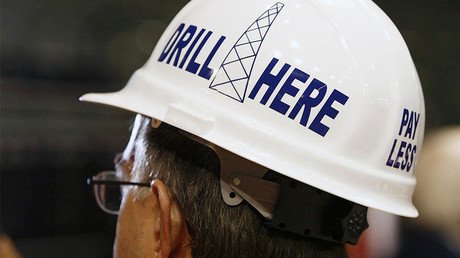Trump wants to sell US oil reserves & drill in Alaska

US President Donald Trump's budget plan envisages selling America’s strategic crude reserves and opening the Alaska National Wildlife Refuge to drilling in an attempt to rebalance the budget and boost economic growth.
The US Strategic Petroleum Reserve is the world's largest and has about 688 million barrels of crude. The oil is heavily guarded in underground facilities in Louisiana and Texas.
The reserve was started in 1975 after oil supplies were interrupted during the 1973–1974 embargo by Saudi Arabia and other OPEC countries, to mitigate future temporary supply disruptions.
According to Trump’s budget plan, the reserve will start to be sold from October 2018, which would generate $500 million, according to the documents. The sales would rise to $3.9 billion in 2027, totaling about $16.6 billion from 2018 to 2027.
At the same time, the US would boost its oil production, as Trump plans to raise $1.8 billion in the next ten years by drilling more in Alaska, the largest protected wilderness in the country, which is said to have vast oil reserves.
US crude production has surged about 10 percent since mid-2016 to 9.3 million barrels per day due to increased shale production. However, politicians in the country have since the 1970s argued whether to open drilling in northeastern Alaska. Opponents say spills could hurt the environment.
The proposed changes in the budget are intended to return US economic growth to three percent.
"It drives our tax reform policy, our regulatory policy, trade, energy... everything is keyed toward getting us back to 3 percent," said Mick Mulvaney, the director of the Office of Management and Budget.
The White House budget will be delivered to Congress on Tuesday and could see changes.














